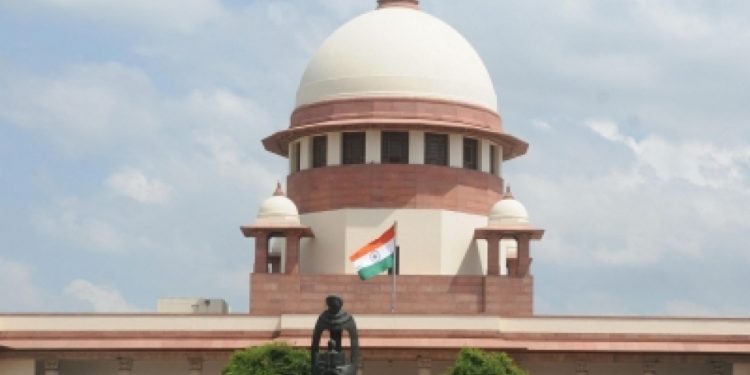New Delhi: The Supreme Court Wednesday said it will not allow either the Centre or the West Bengal government to raise any political issue during the arguments on the state’s lawsuit which alleged that the CBI is going ahead with its investigations despite withdrawal of general consent by the state.
A bench of Justices BR Gavai and Sandeep Mehta said it was only deciding a legal issue and the court will not permit either of the parties to make political arguments.
The bench reserved its verdict on the maintainability of the suit filed by the state government.
Senior advocate Kapil Sibal, appearing for West Bengal, argued that once the state had withdrawn its consent November 16, 2018, the Centre can’t allow the probe agency to enter the state for investigation.
Solicitor General Tushar Mehta, appearing for the Centre, said the Union government or its departments don’t exercise any supervisory control over CBI investigations.
Mehta said while advancing his submissions in the matter May 2, he never went into the political part of it.
“We are only on a technical issue, why should we go into political part,” the bench said.
The top law officer said this was a suit and arguments can’t go beyond the pleadings.
He said Sibal, while arguing the matter May 2, had said once the CBI goes to a state, the Enforcement Directorate (ED) enters, too.
Mehta said ED goes for “counting cash” recovered during a probe.
“We are only deciding a legal issue,” the bench observed, adding, “We will not permit either of the parties to raise any political issue”.
During the arguments, Sibal referred to the provisions of the Delhi Police Special Establishment (DPSE) Act, 1946 and said, “We (state) have informed your lordships of the cause of action. You can’t enter my state without my consent and you can’t do it suo motu (on your own)”.
He said consent of the state government must be obtained for the exercise of power by the CBI.
“Once I have withdrawn consent, the Union can’t allow its investigating agency to come to my state without my consent,” Sibal argued.
He said granting consent was a privilege and the power to allow that privilege was vested in the state.
In his rejoinder, Mehta said there was no cause of action against the Centre in this matter.
“The DoPT (Department of Personnel and Training) never registers a case,” he said, adding, “The DoPT can’t direct registration of an FIR. Nor can any other department of the Central government supervise the investigation”.
He said it was “devastating” to say that the CBI is a police force of the Union.
Mehta said the Union does not have the power to direct the CBI to register an FIR for a particular offence.
During the arguments last week, the Centre had told the apex court that the CBI was not under the “control” of the Union and the government can’t supervise either the registration of an offence by the agency or its investigation.
The Centre’s submission assumes significance as the opposition parties have been accusing the government of misusing central probe agencies like the CBI and the ED to target its rivals.
The Centre has raised preliminary objections about the maintainability of the lawsuit filed by the West Bengal government, contending that there was no cause of action against the Union of India.
The West Bengal government has filed an original suit in the apex court against the Centre under Article 131 of the Constitution, alleging that the CBI has been filing FIRs and proceeding with investigation despite the state having withdrawn the general consent to the federal agency to probe cases within its territorial jurisdiction.
Article 131 deals with the Supreme Court’s original jurisdiction in a dispute between the Centre and one or more states.
The West Bengal government November 16, 2018 withdrew the “general consent” accorded to the CBI to conduct a probe or carry out raids in the state.
PTI






































